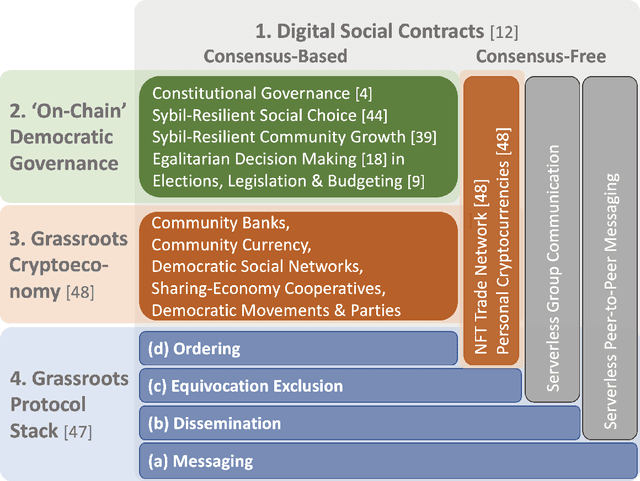Ehud Shapiro
AI-Generated Compromises for Coalition Formation
Jun 07, 2025Abstract:The challenge of finding compromises between agent proposals is fundamental to AI subfields such as argumentation, mediation, and negotiation. Building on this tradition, Elkind et al. (2021) introduced a process for coalition formation that seeks majority-supported proposals preferable to the status quo, using a metric space where each agent has an ideal point. A crucial step in this process involves identifying compromise proposals around which agent coalitions can unite. How to effectively find such compromise proposals remains an open question. We address this gap by formalizing a model that incorporates agent bounded rationality and uncertainty, and by developing AI methods to generate compromise proposals. We focus on the domain of collaborative document writing, such as the democratic drafting of a community constitution. Our approach uses natural language processing techniques and large language models to induce a semantic metric space over text. Based on this space, we design algorithms to suggest compromise points likely to receive broad support. To evaluate our methods, we simulate coalition formation processes and show that AI can facilitate large-scale democratic text editing, a domain where traditional tools are limited.
Foundations for Grassroots Democratic Metaverse
Apr 10, 2022
Abstract:While the physical lives of many of us are in democracies (one person, one vote - e.g., the EU and the US), our digital lives are mostly in autocracies (one person, all votes - e.g., Facebook). Cryptocurrencies promise liberation but stop short, at plutocracy (one coin, one vote). What would it take for us to live our digital lives in a digital democracy? This paper offers a vision, a theoretical framework, and an architecture for a grassroots network of autonomous, people-owned, people-operated, and people-governed digital communities, namely a grassroots democratic metaverse. It also charts a roadmap towards realizing it, and identifies unexplored territory for further research.
 Add to Chrome
Add to Chrome Add to Firefox
Add to Firefox Add to Edge
Add to Edge